In this month’s blog post, CEO Ryan Miller discusses the latest update at Google and how the search engine is now blocking what are known as self-serving reviews in search results. Read on to find out exactly what is considered a self-serving review and to learn the answers of some common questions that come along with this new policy.
Hi again, it’s Ryan Miller with Etna Interactive, it’s good to back with you, we’re going to talk today about an important update at Google. One, specifically, that is targeting self-serving reviews. Now, you can admit it, you know you do it, you Google yourself. And if you Google yourself regularly, over the last couple of years you’ve probably noticed this: search engine results were individual results featuring stars and not just on sites like Healthgrades or Yelp, but on a practice’s own website.
Now, in this particular example that you see on your screen I’ve blurred the identities of some practices because they are maybe doing some things that are a little bit shady. Specifically, in these results what we see is that we have practices with hundreds of reviews that are a perfect five stars. When we dove in, what we found is that the sites where they said those reviews were coming from, well that they had purposely omitted including in their calculations four-star reviews and below.
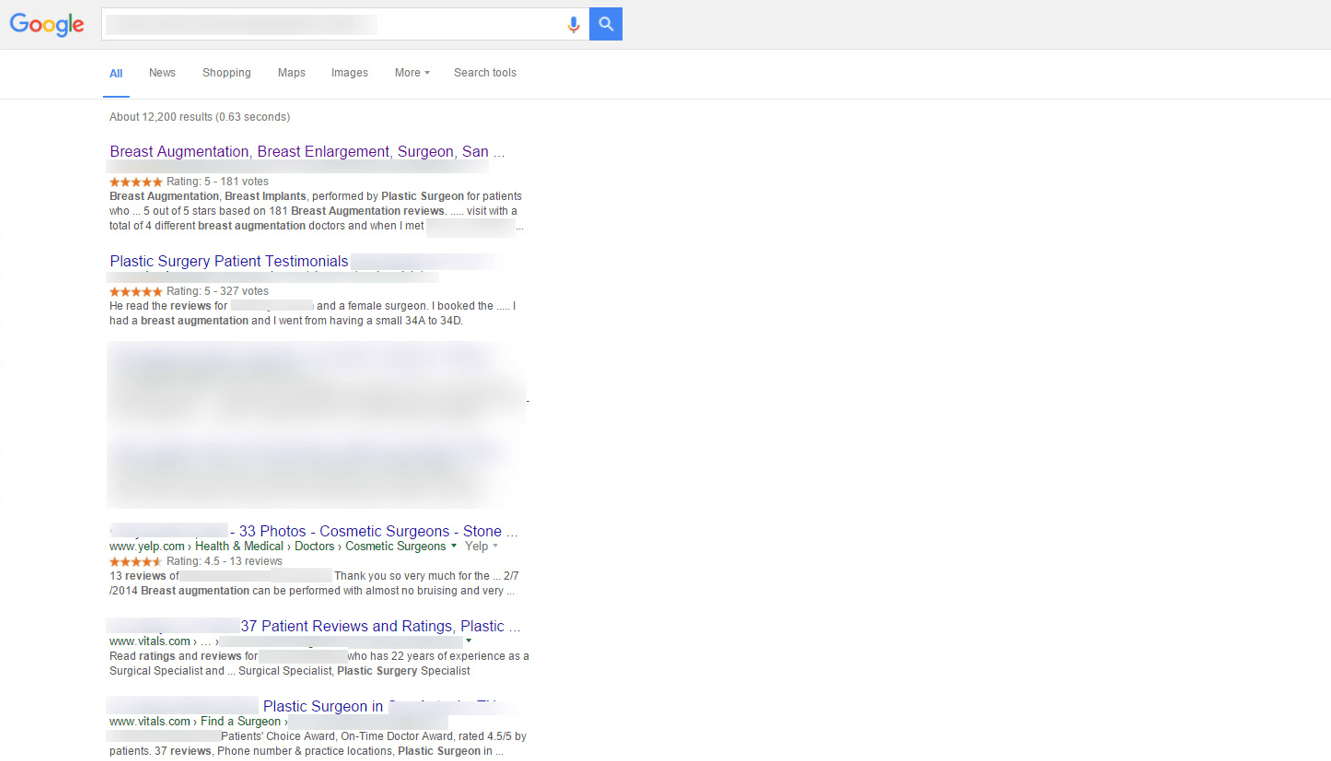
It’s that kind of shady practice that has caused Google to step up and document a new policy that specifically says, look if the reviews are self-serving, we’re taking away the stars. Now how did they do it in the beginning, rather, in the very first place? There’s this code called schema. It allows us to embed, behind the scenes, deep in the code of your webpage, structured information that we hand to Google on a platter about you, your locations, your services, or in this case, how patients review them.
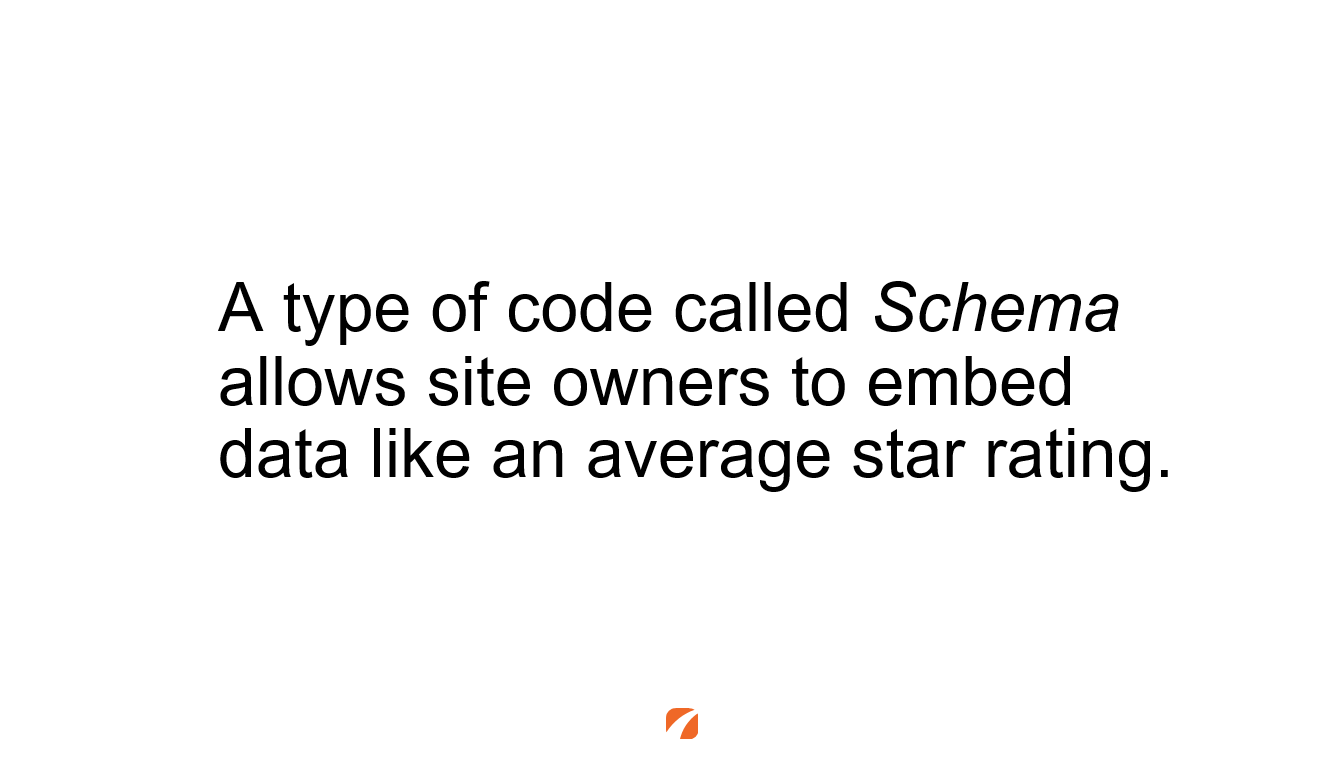
Now, so many people have complained. There are submission forms on each one of the pages that these kind of abuses, people who were broadcasting a value for their average star rating on their own website, about their own services, and willfully excluding things like 4 star, 3 star reviews and below, well that Google came forward and said we have to issue a new policy.
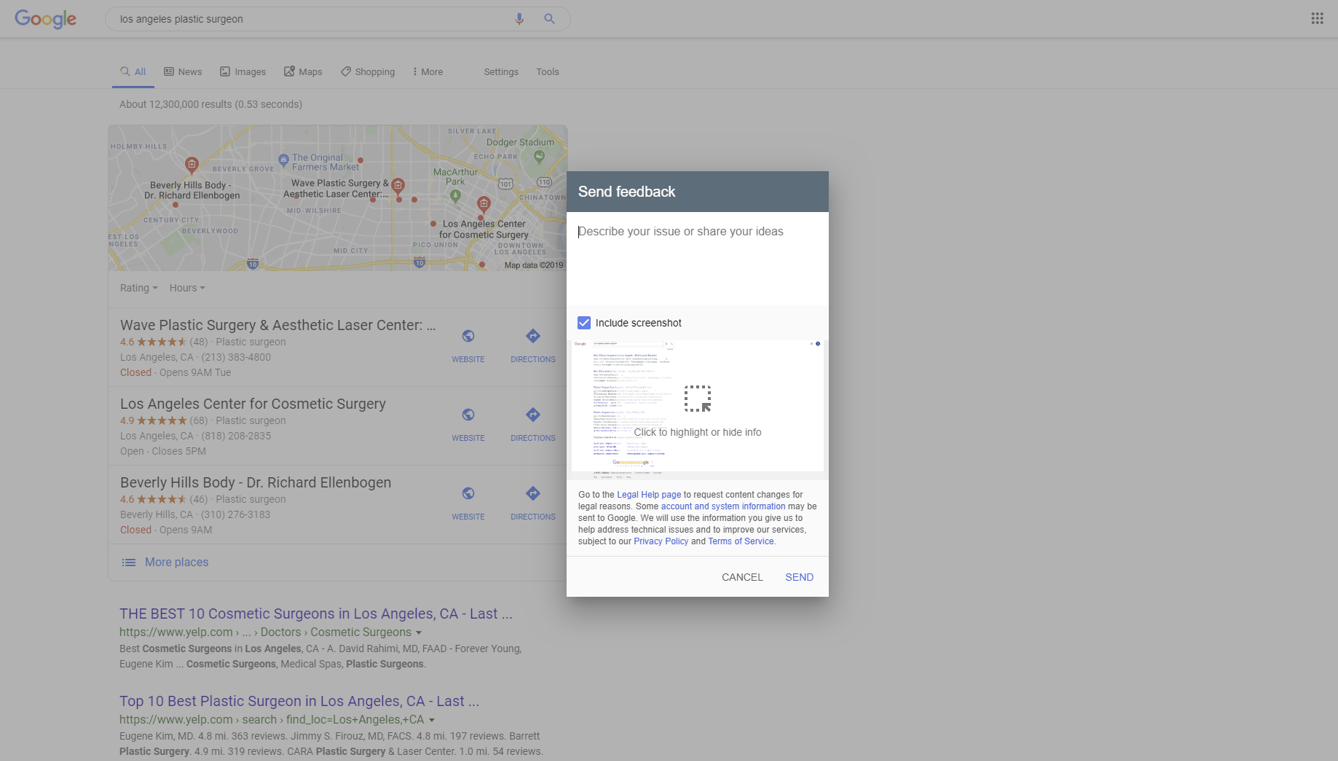
So in September 2019 they basically took a move to block the display of self-serving stars in search results. Try to say that ten times fast. If you want to take a deep dive into the policy, they’ve actually updated it twice since the original issue. You can follow the link that’s on your screen now or look down in the transcript, you’ll see it there too.
https://webmasters.googleblog.com/2019/09/making-review-rich-results-more-helpful.html
Now there has been a lot of questions about it, that’s why Google had to re-issue their policy statement so let me try to address those questions for you right away.
One of the first things we get asked right away about this is, ‘what about the review widgets? I’m paying this third-party service and I’ve got a little bit of code that puts star ratings and reviews right on my own website.’ And the answer is, those are still fine, just don’t expect that they will trigger stars in your search results on Google anymore.
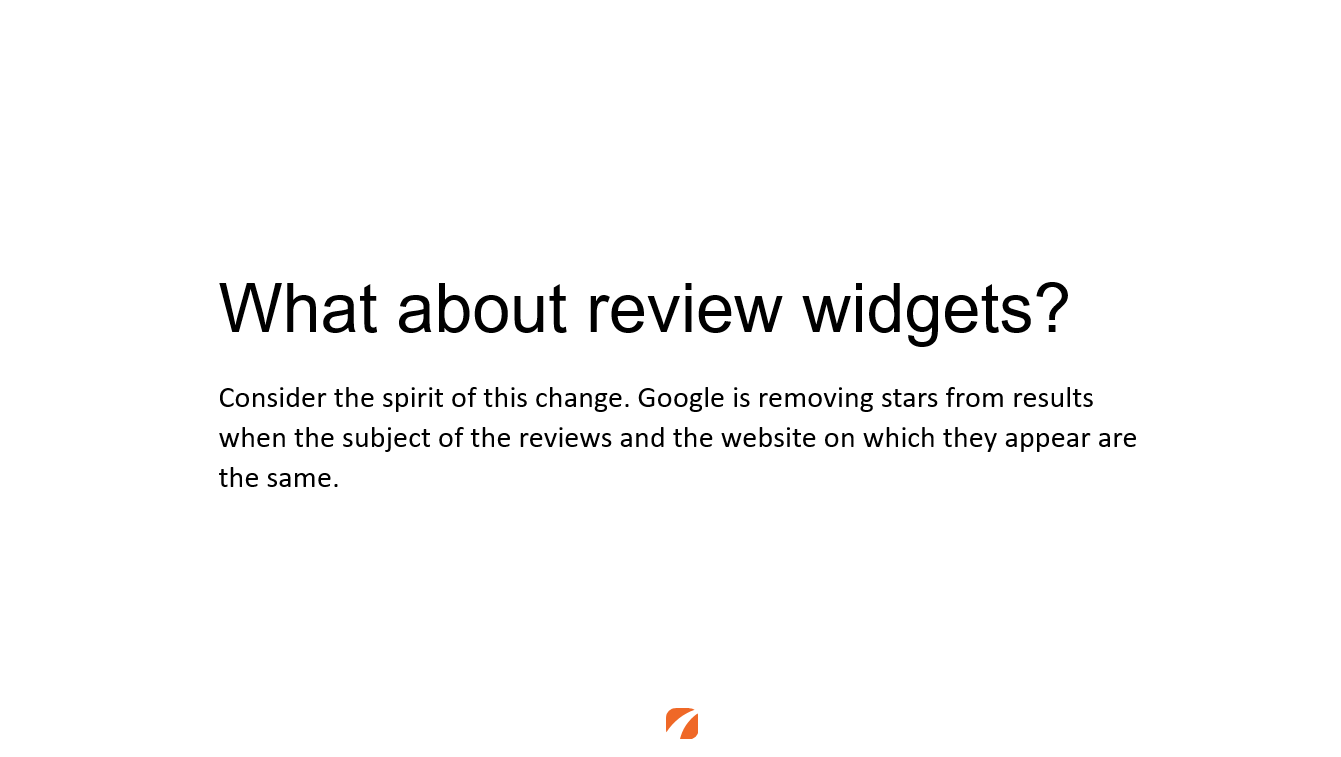
In addition to that, I get questions about whether or not we need to review schema, specifically the aggregate-rating schema if it’s present on your website today. And the answer is no. Google has come out and said formally that it is not a crime to put it there, they’re just not going to give you star values anymore in those search results.
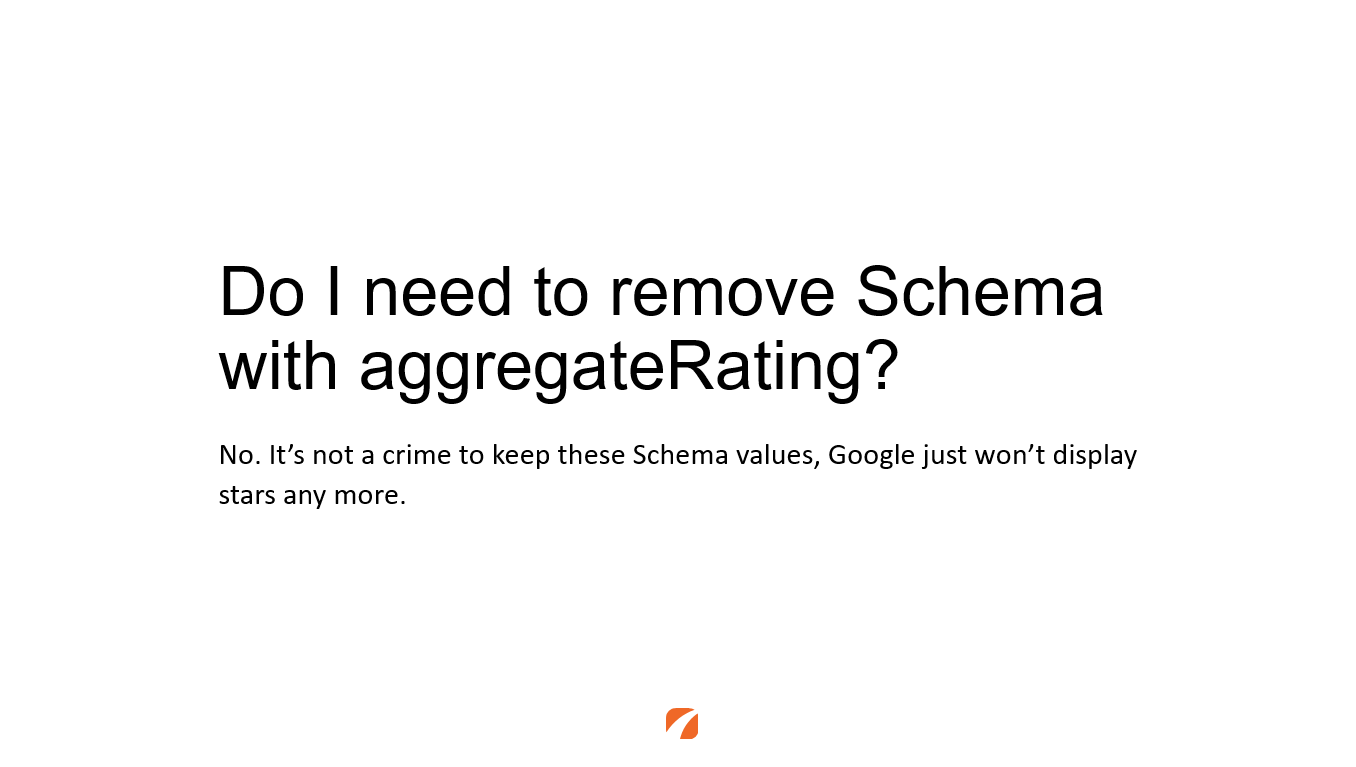
If you find competitors that are still out there with stars in Google, what does that mean? Well ultimately, we know that this is a hard thing for Google to detect programmatically, for a computer to see that these are aggregate-rating values, these are star values about a specific business and from that same business. And until they are perfect at detecting it, we can expect to see that some competitors may be able to retain it. We have a couple of options there, you can choose to turn them in. Reporting and complaining that ‘hey this is a violation of Google’s own policy’ and that will level the playing field inside of your market or you can just be patient. We expect to see that Google’s technology will evolve very very quickly and that they will be in to filter these, and actually some similar technical issues that might result in competitors having star values next to their search results, really really soon.
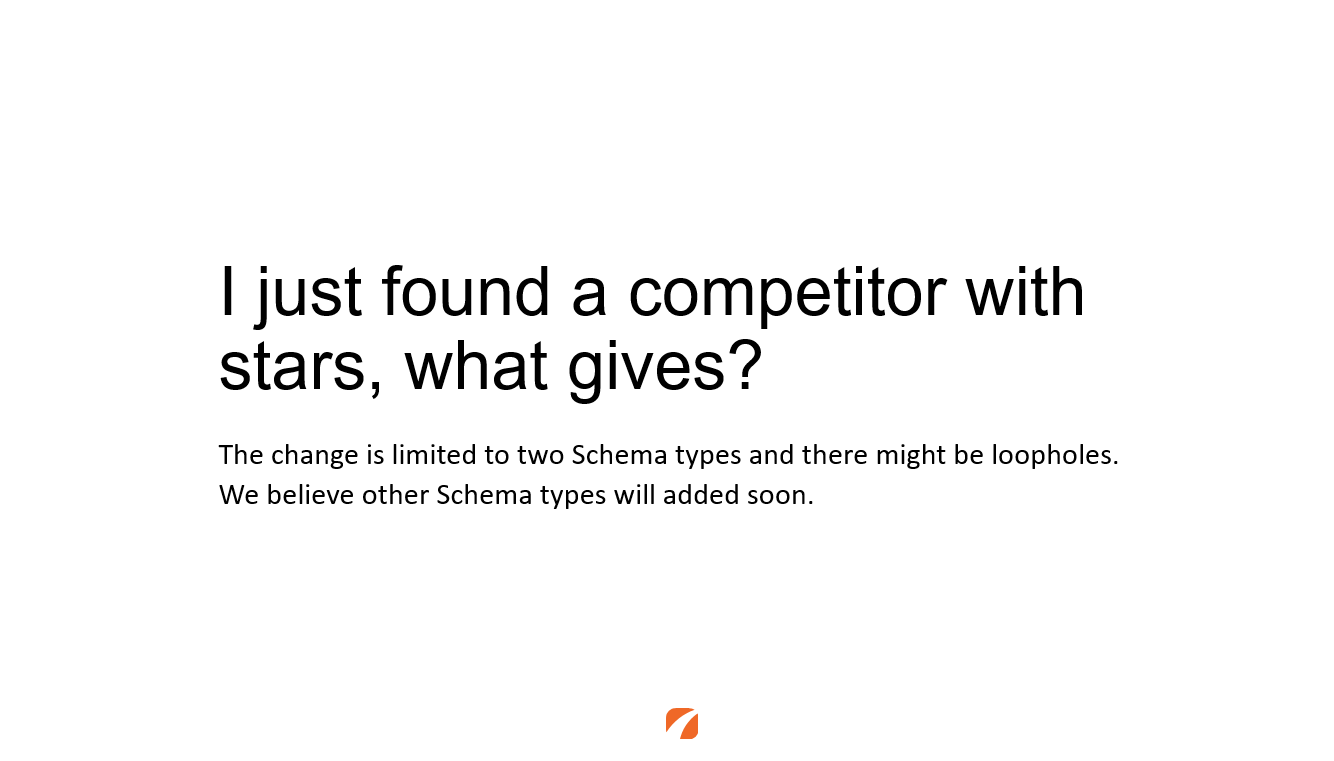
In addition to that we get the question about this, and I think this is maybe the big one, ‘Does this somehow make putting reviews or testimonial content on my own website less value?’ and the answer is no. It is more valuable than ever to continue to showcase the experience that patients have and that they write about it inside your office because we know that, a couple of things: it increases time on site, it increases consumer confidence, and it can lift conversion on your website encouraging more people to ask for a consultation when you openly share the good and the mediocre experiences that people are having with your office so that patients feel like they have a real understanding of what you’re all about.
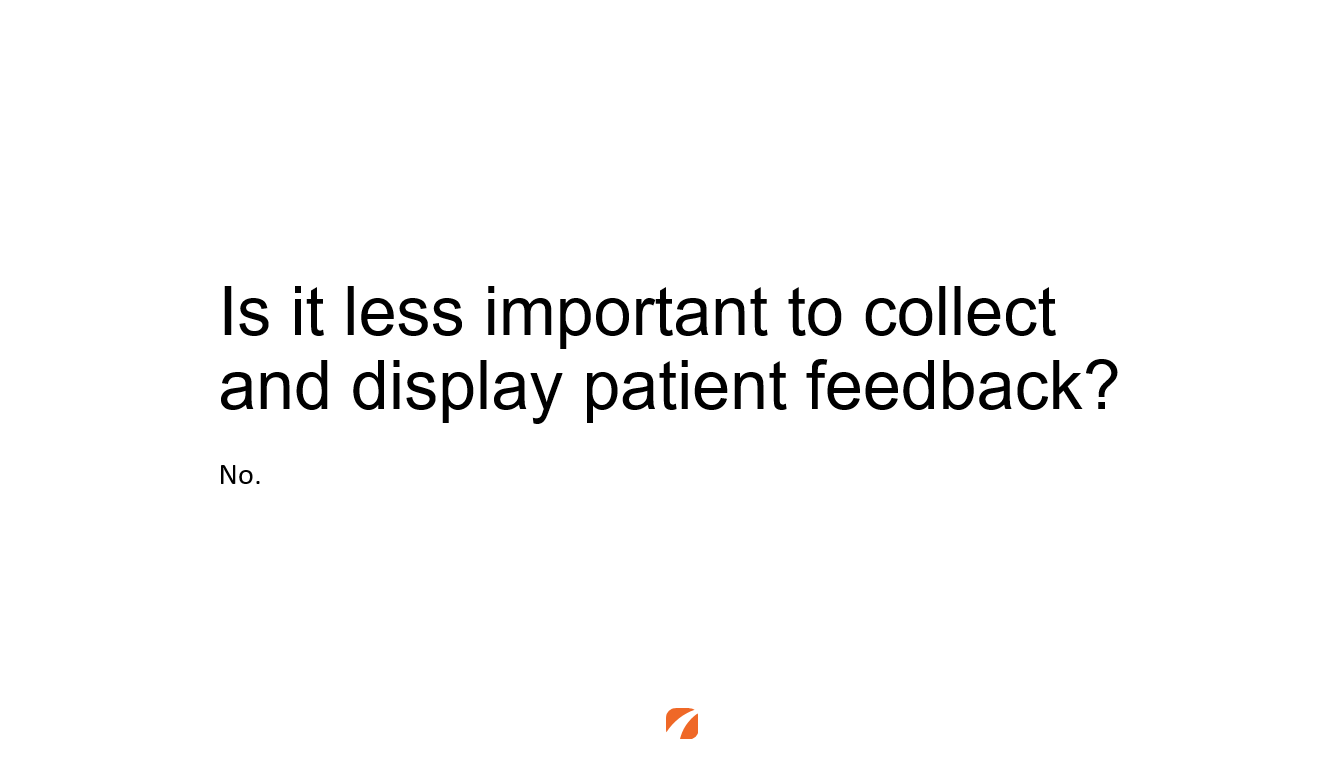
Just like before and after photos in the aesthetics space, it’s a numbers game. More reviews is better. Right, we get a nice and big representative sample. Now in addition to that, the question that I’ve heard a couple of times, ‘If they’re taking away from us, why is Google still giving star ratings next to the major rating and review sites?’ Well the answer is because they trust them more than they trust you. They trust them to be objective and to share the information that they collect and trust about the businesses that they are rating.
Now interestingly we can get a little sense of what Google is going for here. I did a screen grab of a search that I did of a market in the South where you can see that there are actually very very few reviews left anymore or stars left anymore. When we go down the page we’ll see that Vitals, RateMDs, they’re there without stars, but there’s one service left with one practice in this case, that does still have stars next to the search results and it’s Real Patient Ratings.
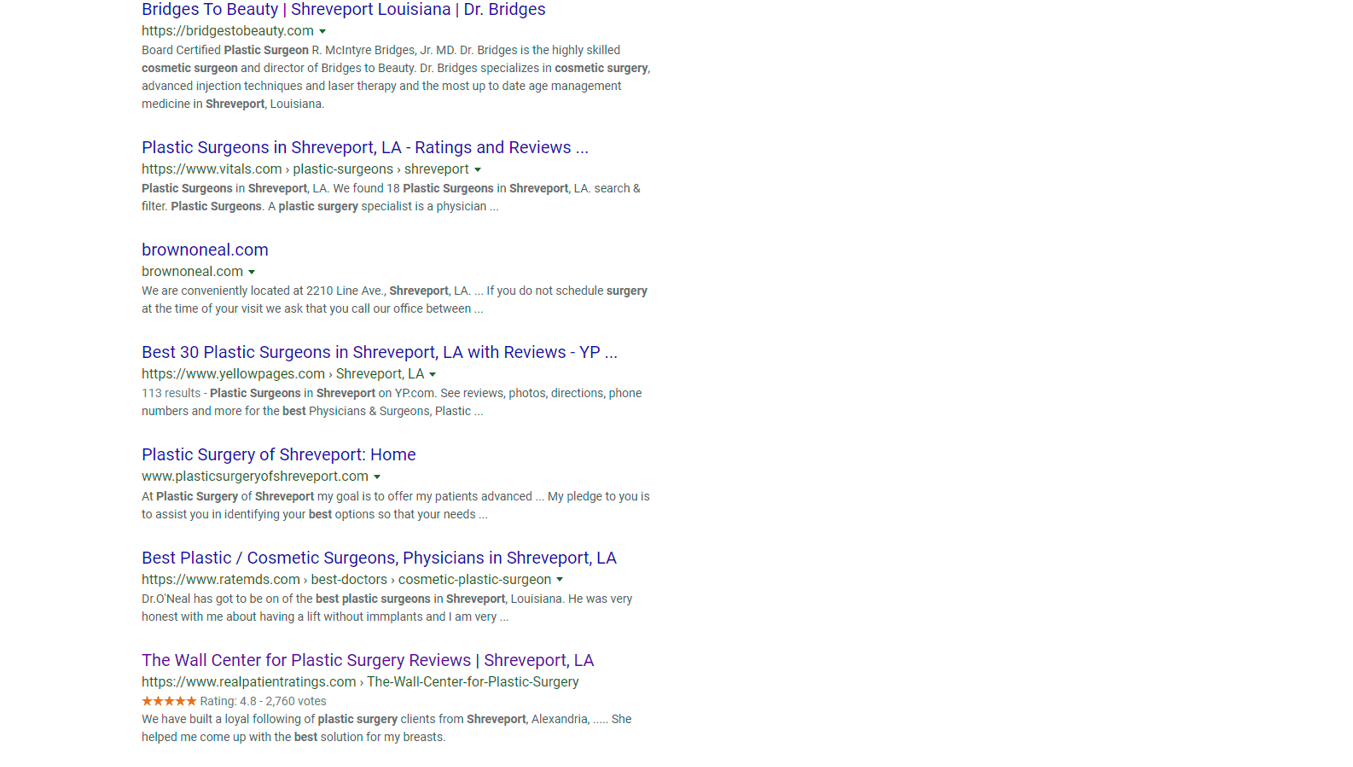
What we know about that service that’s different from sites like Vitals or Healthgrades is that these are verified patient reviews. They have an intrinsic step that connects the patient to the practice and that they know for sure that this person has received treatment.
It says something to us that this is the only one of the results here out of the major national networks that actually has a star rating value next to it and it’s a good signal that Google is looking for sites that they can truly trust if they are going to give them those rich star results right in the midst of their search, in the search results page.
Ultimately what does it change? What does it mean for you and your practice about how you think about it when you approach reputation online? Well it’s more important than ever that you think about reputation holistically.
First and foremost, we continue to recommend that practices focus on earning native reviews on their Google My Business listing. Really for two reasons. These are going to help you rank better in local search, in addition to that when those reviews appear directly on Google they’re more likely to influence the star values that will continue to be displayed on Google local search.
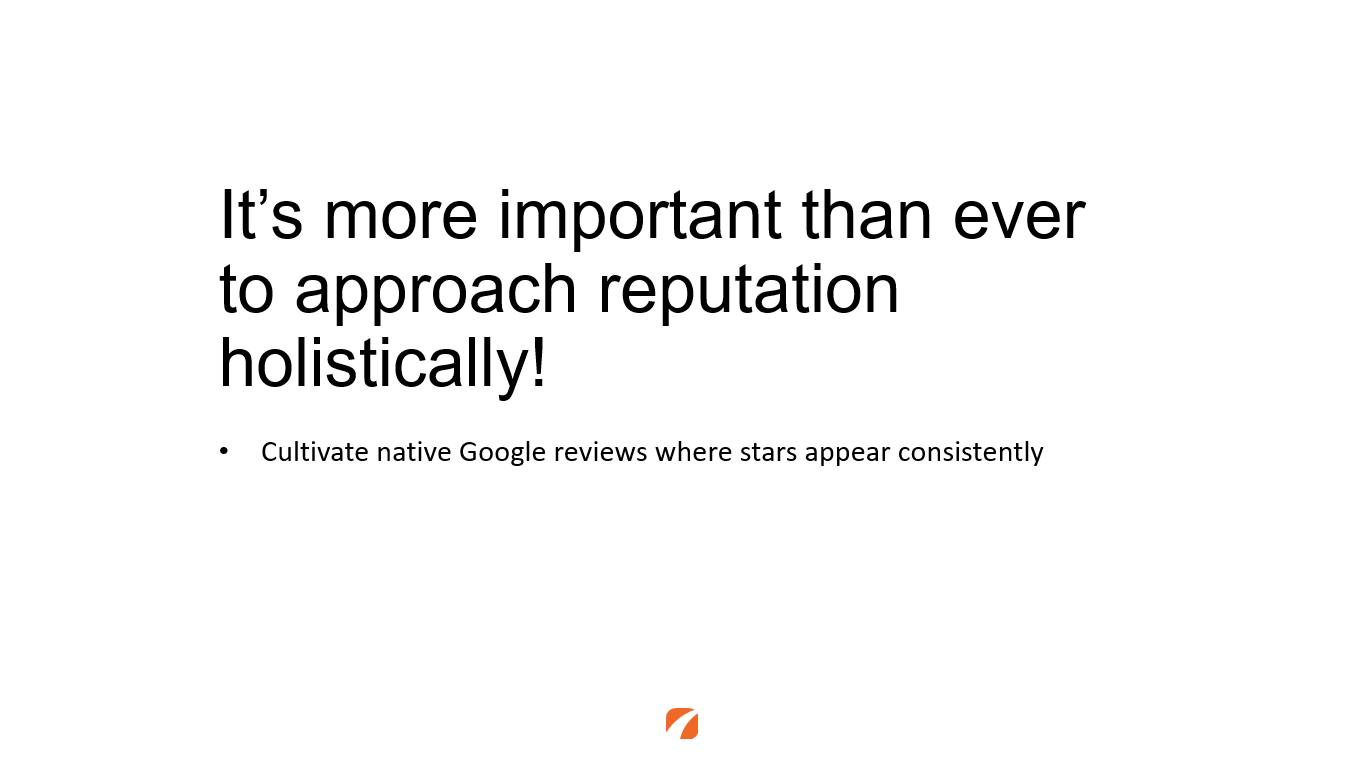
Now, you’re not going to want to put all of your eggs in that one basket so we want to have a really diverse approach to a review cultivation. That means that you need to be thinking about those very very visible third-party websites, we saw a few there in that example, like Vitals, RateMDs and commercial service, RealPatientRatings®. Sites like that ultimately are going to give you better and broader visibility, they’re going to protect your reputation and have a strong chance of earning stars inside of Google search results which will improve your visibility.
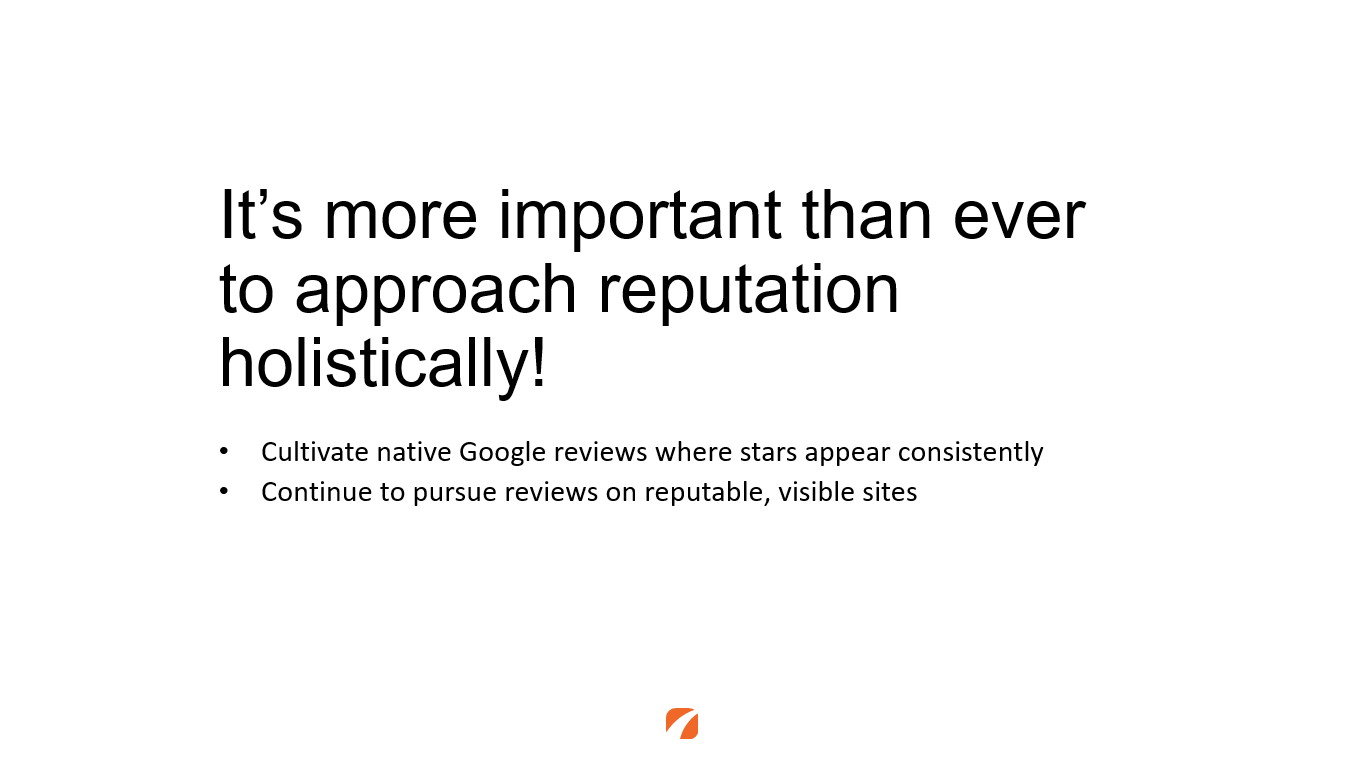
Finally, if you are going to use a third-party service for reputation management, this might be a service that helps encourage patients to write reviews, that aggregates those reviews back together, and then allows you to put a feed directly on your website, that you find one that is gathering data in a way that is comprehensive and segmented so that you can put meaningful chunks of reviews on different parts, or different places, on your website to help patients make informed choices when they’re considering consulting you.
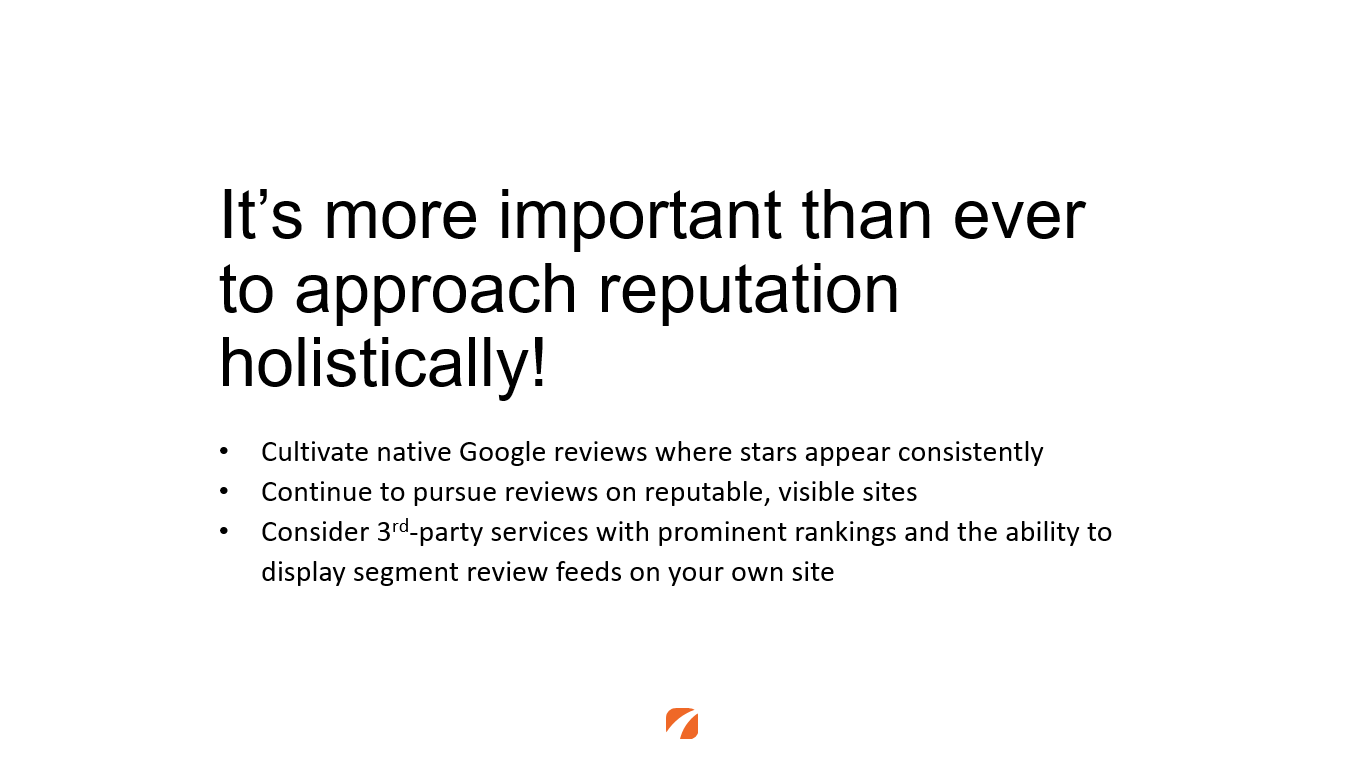
So, if you have questions you contact us using the button below, you can post a question in the comments section in our blog below, and of course if you’re not already a member of our newsletter we hope you’ll join. Visit us at etnainteractive.com/newsletter to subscribe.
Contact Us

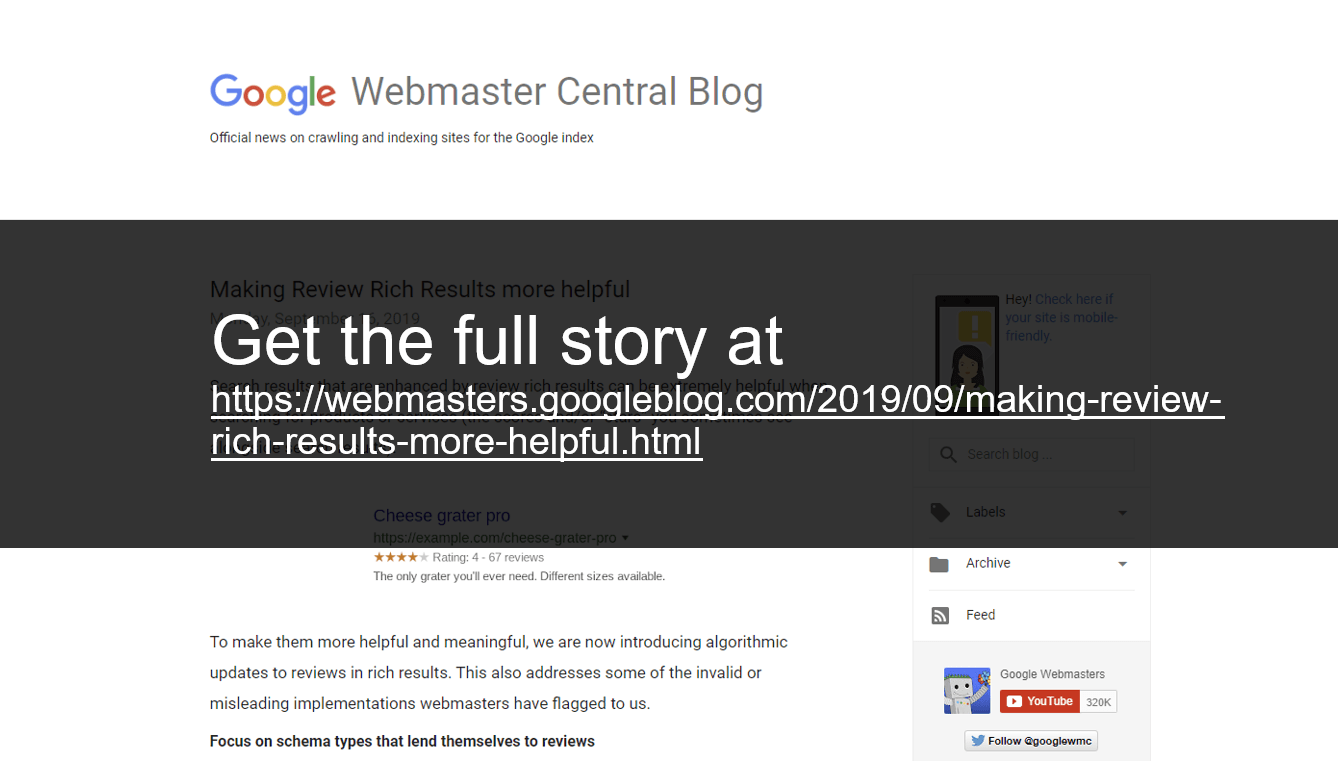
Great video Ryan. Google is keeping the star ratings for local search? So if someone googles breastaugnyc, the star ratings will show but if they google bestbreastaugmentation, the stars will not show?
Thank you.
Thanks for the question Dr. Pfeifer. What’s changing isn’t so much about the query but instead about the sites for which Google will display stars within their search results. If they deem the star values encoded within the pages of a site to be self-serving, then that site will not get stars on the search results page. Sites like Yelp or Real Patient Ratings, who carry reviews of practices like yours may still have their star values on Google’s results page.